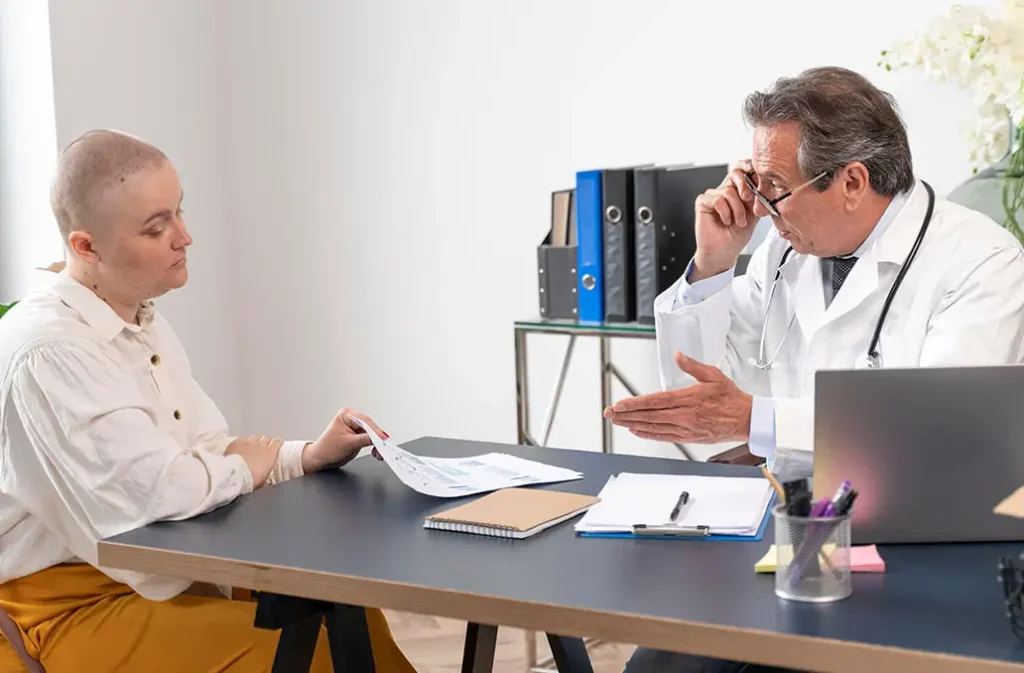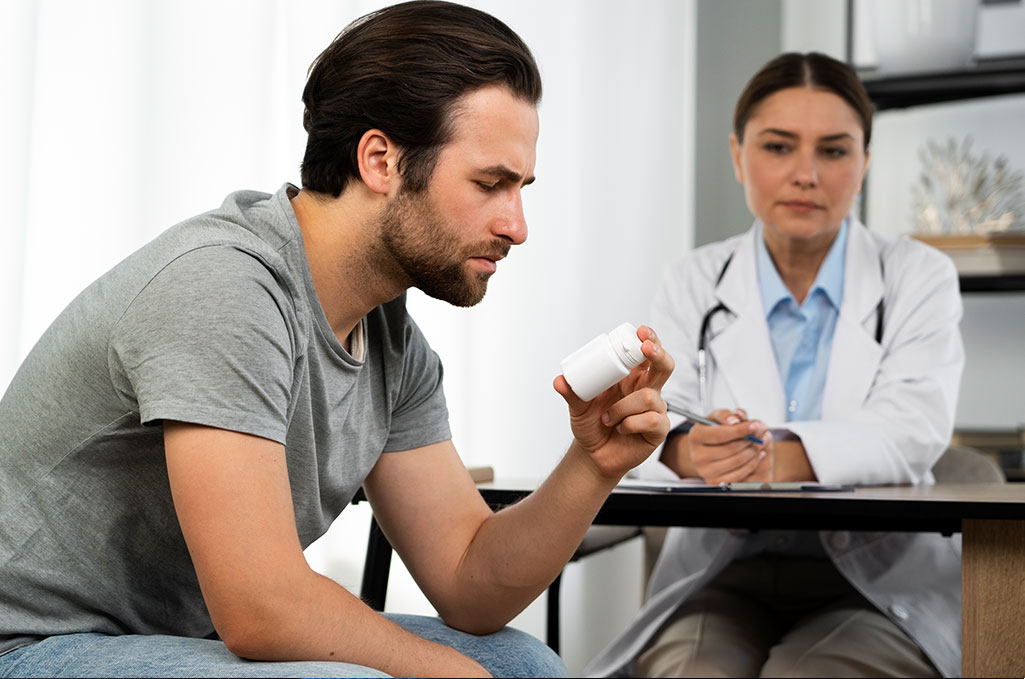Dual Diagnosis Treatment: Finding The Root Cause of Your Struggle
Holistic Approaches to Mental Health and Addiction
Request a Callback
Integrated Care for Dual Diagnosis
Addiction and mental health disorders often go together, and treating only one makes recovery harder. This is called dual diagnosis, where a person has both a mental health issue and a substance use disorder. The National Institute on Drug Abuse (NIDA) states that about 7.7 million adults have this condition.
People may use drugs or alcohol to cope with their mental health problems, or long-term substance use can lead to issues like anxiety and depression. Risk factors, such as genetics and trauma, can contribute to both conditions, which is why dual diagnosis treatment is crucial.
In dual diagnosis treatment, both addiction and mental health are addressed together. This combined care is vital for recovery, whether someone is dealing with depression, PTSD, or anxiety. Finding a dual diagnosis treatment center Freehold NJ can support lasting recovery.

Symptoms of Dual Diagnosis

Withdrawing from friends and family

Sudden changes in behavior

Using substances in dangerous situations

Engaging in risky activities

Losing control over substance use

Developing a high tolerance and experiencing withdrawal symptoms

Feeling like you need a drug to function

What Comes First: Substance Abuse or Mental Health Problems?
Substance abuse and mental health disorders, like depression and anxiety, are closely connected, but one doesn’t directly cause the other. Drugs like marijuana and methamphetamine can lead to lasting psychotic reactions, while alcohol can worsen depression and anxiety.
Many people use substances to self-medicate their mental health issues, but this often backfires, worsening symptoms in the long run. Substance abuse can also heighten the risk of developing mental health disorders, especially in those already at risk. For example, opioid abuse is linked to increased depression risk, while heavy cannabis use can raise the likelihood of schizophrenia.
Furthermore, getting help for substance abuse can lead to better management of mental health symptoms. This also makes medications work better and helps people recover when they seek dual diagnosis treatment in New Jersey.
Treatment for a Dual Diagnosis
Treatment for your mental health problem can include medication, individual or group counseling, self-help strategies, lifestyle changes, and peer support. For substance abuse, treatment may involve detox, managing withdrawal symptoms, behavioral therapy, and support groups to help you stay sober.
Choosing the right program can help you:
- Reflect on Substance Use: Understand how alcohol and drugs affect your life in a safe, confidential space without judgment.
- Gain Knowledge: Learn about how substances interact with mental health and medications.
- Access Employment and Services: Find job opportunities and other resources that support your recovery journey.
- Set Personal Recovery Goals: Work with a trained counselor to identify and develop specific goals for both substance use and mental health issues.
- Receive Specialized Counseling: Participate in counseling tailored for dual diagnosis, whether individually, in peer groups, or with family.
This supportive environment helps you on your path to recovery from Dual Diagnosis in New Jersey.


What to Expect From a Luxury Dual Diagnosis Treatment Center in NJ
At our luxury dual diagnosis treatment center in Freehold NJ, the journey begins with a thorough evaluation to understand your specific mental health condition and its severity. This step is essential for creating a personalized treatment plan that caters to your unique needs. Detoxification is also a crucial first step, allowing your body to break its physical dependence on drugs or alcohol before addressing mental health issues.
Our rehab program centers on effective talk therapies. In addition to individual therapy with trained specialists, group sessions provide a supportive community of peers who share similar experiences. We also use holistic therapies like equine, yoga therapy, music, massage, and meditation to promote overall healing and well-being.
We Work With Most Major Insurance Providers
- Aetna
- Amerihealth
- Anthem
- Beacon
- Behavioral Health Systems
- BCBS—Most BlueCross & BlueShield Plans
- Carelon Behavioral Health
- CareFirst
- Cigna
- ComPsych
- Coventry
- Empire BlueCross BlueShield
- GHI
- Highmark
- Humana
- Magellan
- MagnaCare
- Meritain Health
- MultPlan
- NYSHIP (New York State Insurance Plan)
- Optum
- Oxford
- PHCS
- Self-Pay
- TRICARE
- UHC
- UMR
- VA Insurance
- 90 Degree Benefits
- Aetna
- Amerihealth
- Anthem
- Beacon
- Behavioral Health Systems
- BCBS—Most BlueCross & BlueShield Plans
- Carelon Behavioral Health
- CareFirst
- Cigna
- ComPsych
- Coventry
- Empire BlueCross BlueShield
- GHI
- Highmark
- Humana
- Magellan
- MagnaCare
- Meritain Health
- MultPlan
- NYSHIP (New York State Insurance Plan)
- Optum
- Oxford
- PHCS
- Self-Pay
- TRICARE
- UHC
- UMR
- VA Insurance
- 90 Degree Benefits
At this time, we do not accept Medicaid or Medicare.
Completely Heal with Dual Diagnosis Treatment in NJ
Completely healing means treating the whole person, not just the illness. At Relevance Recovery, our dual diagnosis treatment focuses on helping you overcome both mental illness and addiction. We use an integrated approach combining traditional therapy with holistic methods to support your healing.
Contact us today if you want to know more about dual diagnosis treatment in New Jersey.

Relevance saved my life. Everyone here is so helpful and genuine. I highly highly recommend!
This program was absolutely life changing. It fully brought me out of a dark tunnel and into a fresh perspective of enlightenment.
Coming from another treatment center from southern Jersey, I was really anxious and afraid, being completely out of my element, it felt like I was a fish out of water. Relevance’s team really made me feel comfortable while I was being treated, and I thank them for that. I felt really supported and cared for during the time I attended program!
Grateful for Relevance and their open door to seek the treatment I needed.
Great place! All the people are friendly and the staff helped me greatly in my recovery.
This place is a wonderful place to better yourself if you’re looking for a place that still feels like reality. You are not isolated from the rest of the world, but working on yourself within it. Most of the employees here really make an effort to help you, and the atmosphere is wonderful! I’m so greatful for this place
Relevance was such a welcoming environment every day. Staff was amazing supportive and caring. Definitely helped me prepare for life after treatment.



